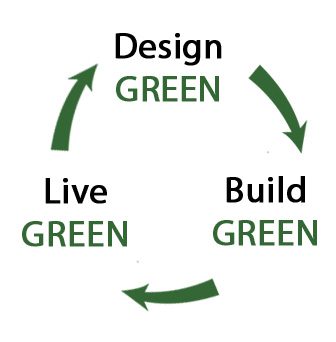What is a geothermal heat pump water heater?
Water heating is a thermodynamic process using an energy source to heat water above its initial temperature. A geothermal water heater does exactly that… [it] utilizes the earth as a heat source to heat/cool water temperatures for your space. Your utility bills will usually cut in half by utilizing geo-thermal.

Heat Extraction
While it may be difficult to explain the technology of extracting heat from air, water or ground, the concept is easier to comprehend once one understands the principles of heat extraction and heat exchange. Consider the following:
- All matter contains heat. Zero degrees Kelvin/Rankine (minus 273 degrees Celsius/minus 460 degrees Farenheit) is absolute zero. This is a hypothetical, but fairly well substantiated, theory. There is nowhere in the universe where absolute zero exists. Temperatures in outer space have been found to be approximately three degrees Kelvin, which supports the theories developed by scientists.
- Cold is the absence of heat. Cold exists only in relative terms, and plays no part in scientific theory. While we all verbalize such expressions as “It is cold out”, to be technically correct we should say “the heat level outside is ten degrees farenheit” (which, admittedly, is pretty cold).
- Heat always flows from higher temperature matter to lower temperature matter by conduction (from molecule to molecule), by convection (air currents) and by radiation (electro-magnetic waves).
- Heat can be moved or “extracted” from one source and delivered to another by various means such as “heat exchangers”.
What is a heat pump water heater?
Most homeowners who have heat pumps use them to heat and cool their homes. But a heat pump also can be used to heat water – either as stand-alone water heating system, or as combination water heating and space conditioning system.
 How they work:
How they work:
Heat Pump water heaters use electricity to move heat from one place to another instead of generating heat directly. Therefore they can two to three times more energy efficient that conventional electric resistance water heaters. To move the heat, heat pumps work like a refrigerator in reverse. While a refrigerator pulls heat from inside a box and dumps it into the surrounding room, a stand-alone air-source heat pump water pulls heat from the surrounding air and dumps it – at a higher temperature- into a tank to heat water. You can purchase a stand-alone heat pump water heating system as an integrated unit with a built-in water storage tank and back-up resistance heating elements. You can also retrofit a heat pump to work with an existing conventional storage water heater. Heat pump water heaters require installation in locations that remain in the 40 degree -90 degree range year round and provide at least 1000 cubic feet of air space around the water heater. Cool exhaust air can be exhausted to the room or outdoors. Install them in a space with excess heat, such as a furnace room. Heat pump water heaters will not operate efficiently in a cold space. They tend to cool the spaces they are in. You can also install an air-source heat pump system that combines heating, cooling and water heating. These combination systems pull their heat indoors from the outdoor air in the winter and from the indoor air in the summer. Because they remove heat from the air, any type of air-source heat pump system works more efficiently in a warm climate.
Heat pump water heaters can be two to three times more energy than conventional electric storage water heaters.

